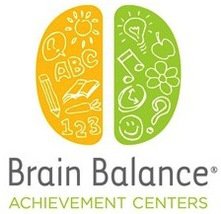Help Your Child Avoid Holiday Meltdowns With a Strategy Plan
Sponsored by Brain Balance Achievement Center
While the wordsbr“stress-free” and “the holidays” don't often go hand-in-hand, all of us atbrBrain Balance Achievement Centers want kids to enjoy this special time of yearbrwithout meltdowns. The following tips and strategies can help everyone enjoybrthis busy and often overwhelming season, especially those with neuro-behavioralbrdisorders like ADHD and Asperger Syndrome.brTry these strategies and help every member of your family enjoy this wonderfulbrtime of year!
1. Give your child a schedule of events for specialbractivities, particularly on days with lots of transitions. Whether it's abrwritten schedule or one with pictures for younger kids, your child will feelbrcalmer and safer knowing what is coming up. Discuss the schedule regularly andbrprovide info for each event. For example, let your child know which events willbrtake place outside and which will be loud or crowded. Sometimes just knowingbrwhat's next can help children with behavioral and sensory issues feel lessbranxiety.
2. Have a code word your child can use if he or shebrfeels overwhelmed and needs a break. Assure your child if he or she uses thebrcode word, you will respond right away. Again, giving children some controlbrduring activities that may be over-stimulating for them will reduce anxiety andbrhelp them stay calm and organized.
3. Before you leave for holiday parties, parades orbrother fun events, have a quick family meeting so your whole family knows howbrlong you plan to stay and how you expect them to behave. This will benefitbrneuro-typical children as well since any child can get overwhelmed with thebrexcitement of the holidays. Continue to make your child's sleep schedule abrpriority, even in the midst of so many special events.
4. Children withbrsignificant sensory sensitivities may require a little extra planning tobrenjoy holiday festivities. For example, you may need to bring along earplugs ifbryou will be in a noisy environment or sensory fidgets if the child is expectedbrto sit still. For sensitive kids who need to wear dress clothes for events,brbring along some soft clothes for them to change into as soon as possible. Bebrprepared by knowing your child's specific limitations and how you will handlebrthem if the need arises. Don't wait for the meltdown to begin.
5. If your children have food sensitivities orbrallergies that prevent them from eating holiday treats, plan ahead to offerbralternatives like all-natural candy or a gluten-free treat from home. Childrenbrwith neuro-behavioral disorders often already feel different, so be sure tobrinclude them in as many holiday festivities as possible.
6. If your child is easily over-stimulated, limitbrholiday decorations in your home. Too many twinkling lights combined withbrsmells from the kitchen and other holidays distractions, while enjoyable tobrmost, can be too much for children with Asperger Syndrome, ADHD or sensorybrdisorders. Allow children to help you decorate for the holidays so they arebrinvolved in the changes that take place in their comforting environment.
The holiday season doesn't have to be a stressfulbrtime of year for your child with a learning or behavioral disorder! We hopebrthese tips help your whole family enjoy this fun time of year.
Since 2006, Brain Balance Achievement Centers hasbrhelped thousands of children, ages of 4 to 17, reach their, academic,brsocial and behavioral potential through its drug-free, whole-childbrapproach. The Brain Balance Program® utilizes sensory motor exercises,brneuro-academic work and nutritional guidance to address the root cause of manybrlearning and behavioral issues. Today, there are over 55 Brain BalancebrAchievement Centers nationwide. For more information, visit
